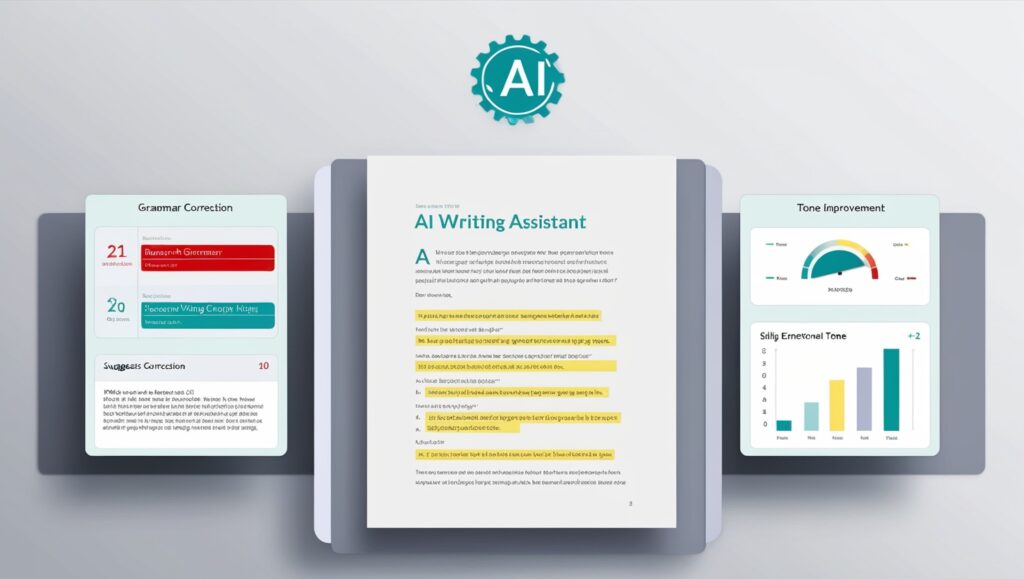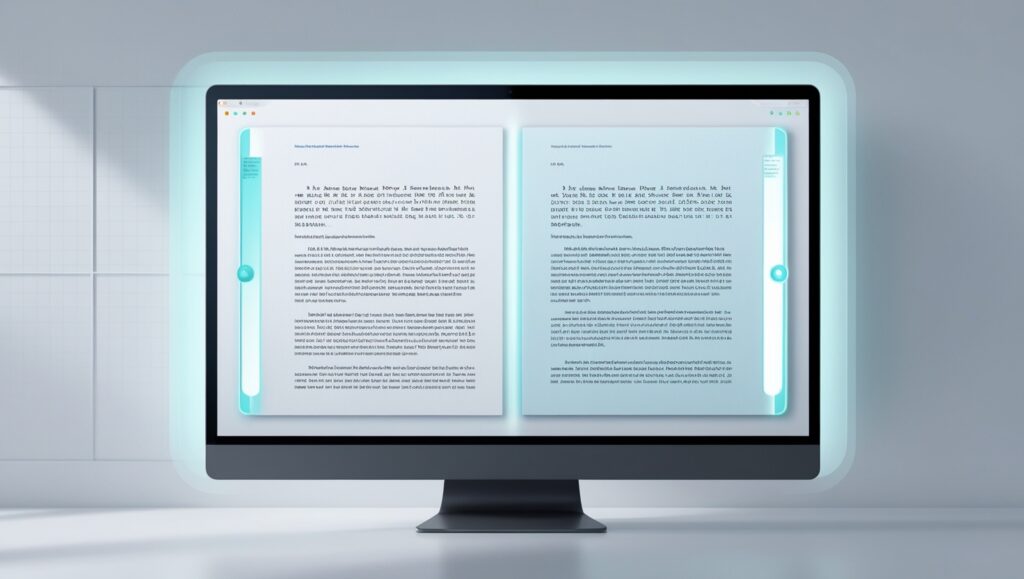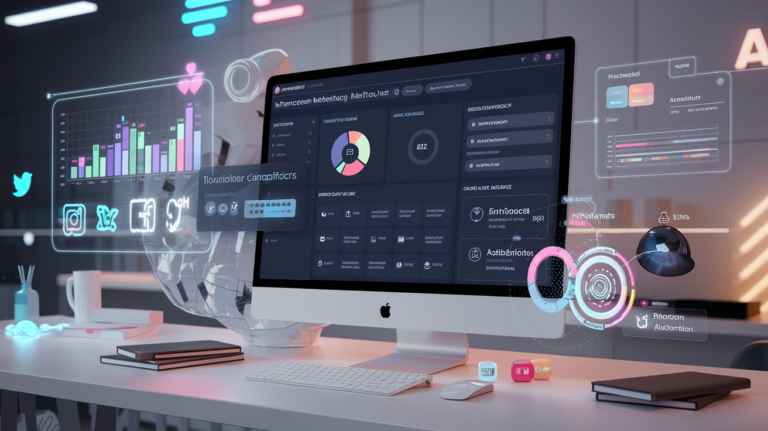19 Best AI Tools for Research in 2025: Boost Productivity & Accuracy
Research is an essential part of academics, business, and content creation. However, going through large amounts of data, summarizing key points, and organizing references can be time-consuming. Artificial intelligence (AI) has made research more efficient, accurate, and faster.
AI tools can help researchers find relevant papers, analyze data, summarize findings, and even write better content. In this blog, we’ll explore the best AI tools for research, categorized by their specific uses, and how they can help you streamline your research process.
How AI is Transforming Research
Artificial Intelligence is revolutionizing research in several ways:
- Automating Literature Reviews: AI helps researchers find and summarize relevant academic papers quickly.
- Improving Data Analysis: AI-powered tools can analyze large datasets with high accuracy.
- Enhancing Writing Efficiency: AI assists in grammar checking, paraphrasing, and structuring research papers.
- Managing Citations & References: AI tools organize and format references to save time.
- Plagiarism & Fact Checking: AI ensures the authenticity of research and avoids unintentional plagiarism.
- Boosting Research Productivity: AI automates repetitive tasks, allowing researchers to focus on innovation.
- Assisting in Grant Writing & Funding Proposals: AI helps craft compelling proposals by analyzing successful applications.
With these advancements, researchers can focus more on insights and innovation rather than tedious manual tasks.
Best AI Tools for Research
AI for Literature Review & Paper Summarization

1. Elicit
Best for: Finding relevant papers and summarizing research
- AI-powered search tool that finds relevant research papers based on questions.
- Summarizes key findings, reducing time spent reading entire papers.
- Helps in literature review by extracting insights quickly.
2. Scite
Best for: Analyzing citations and credibility
- Shows how and where a paper has been cited.
- Highlights whether citations support or contradict findings.
- Helps researchers verify the credibility of sources.
3. Semantic Scholar
Best for: AI-powered academic search
- A research search engine that ranks papers based on influence.
- Uses AI to highlight key papers in specific fields.
- Filters out irrelevant papers, making research more efficient.
4. Research Rabbit
Best for: Discovering and visualizing academic papers
- Helps researchers find connections between papers.
- Provides interactive citation mapping.
- Suggests new studies based on interests.
AI for Writing and Editing

5. Grammarly
Best for: Grammar checking and writing improvement
- AI-powered tool for correcting grammar, punctuation, and style.
- Improves readability and clarity of research papers.
- Offers tone and engagement suggestions for better writing.
6. QuillBot
Best for: Paraphrasing and summarization
- AI-driven paraphrasing tool to avoid plagiarism.
- Helps simplify complex sentences.
- Includes summarization and grammar-checking features.
7. ChatGPT
Best for: Generating research ideas and improving readability
- Helps brainstorm research questions and summaries.
- Can rephrase or improve writing style.
- Assists in writing introductions, abstracts, and discussions.
8. Paperpal
Best for: AI-powered academic writing assistant
- Helps refine academic writing style.
- Provides real-time language and formatting suggestions.
- Ideal for researchers submitting papers to journals.
AI for Data Analysis & Visualization

9. IBM Watson
Best for: Big data analysis and AI-driven insights
- AI-powered analytics platform for deep data research.
- Helps extract insights from large datasets.
- Ideal for business and academic research.
10. Tableau
Best for: AI-powered data visualization
- Turns complex data into clear, interactive visuals.
- Helps researchers interpret trends and patterns.
- Easy integration with various data sources.
11. KNIME
Best for: Open-source data science and machine learning
- No-code AI tool for advanced data analysis.
- Automates data cleaning and transformation.
- Ideal for researchers dealing with large datasets.
12. Orange Data Mining
Best for: Interactive data analysis
- Open-source AI tool for data mining.
- Provides interactive visualizations.
- Useful for both beginners and advanced researchers.
AI for Citation and Reference Management

13. Zotero
Best for: Organizing and citing sources
- Automatically saves and organizes research papers.
- Generates citations in multiple formats (APA, MLA, etc.).
- Works as a browser extension and standalone app.
14. Mendeley
Best for: Managing academic references
- AI-powered reference manager.
- Suggests related research papers.
- Provides cloud storage for research documents.
15. EndNote
Best for: Advanced citation and bibliography management
- AI-assisted tool for managing complex references.
- Supports collaboration with other researchers.
- Helps create formatted bibliographies in seconds.
AI for Plagiarism Checking & Fact Verification

16. Turnitin
Best for: Academic plagiarism detection
- Detects copied content in research papers.
- Helps maintain academic integrity.
- Widely used in universities and research institutions.
17. Copyscape
Best for: Checking for duplicate content
- AI-powered plagiarism checker.
- Ensures originality in research documents.
18. Factmata
Best for: AI-powered fact-checking
- Detects misinformation in research papers.
- Analyzes content credibility using AI.
19. Crossref Similarity Check
Best for: Academic plagiarism detection
- Provides similarity checking for journal submissions.
- Ensures originality in research articles.
How to Choose the Right AI Tool for Research
When selecting an AI tool for research, consider the following factors:
- Purpose: Identify whether you need AI for summarization, writing, citations, or data analysis.
- Ease of Use: Choose a tool with a simple and intuitive interface.
- Pricing: Some tools offer free versions with limited features, while premium plans provide advanced options.
- Integration: Ensure the tool integrates with your existing research workflow (e.g., Microsoft Word, Google Docs, etc.).
Accuracy & Reliability: Use AI tools that provide credible and verifiable information.
Future of AI in Research
The future of AI in research is promising, with advancements in:
- AI-generated research papers that improve writing speed.
- AI-powered peer review systems for better validation of research.
- Enhanced AI models for faster and more accurate data analysis.
- AI-driven grant writing assistance to secure funding.
- Automated research paper reviews to streamline journal submissions.
However, researchers should also be cautious about over-reliance on AI, ensuring critical thinking and fact-checking remain a priority.
Conclusion
AI tools have revolutionized research by making it faster, easier, and more efficient. Whether you need help with literature reviews, data analysis, writing, or citations, there’s an AI tool for every aspect of research.
By leveraging these AI-powered tools, researchers can focus more on innovation and insights rather than spending hours on manual tasks.
Which AI tool do you find most useful for research? Let us know in the comments!







